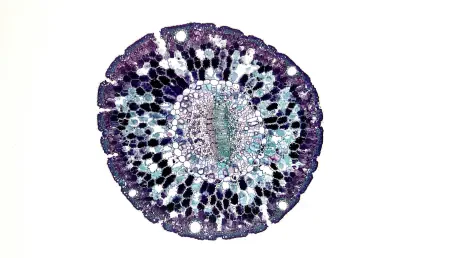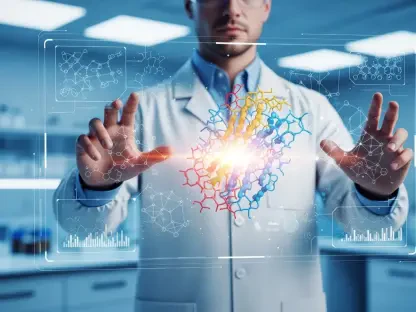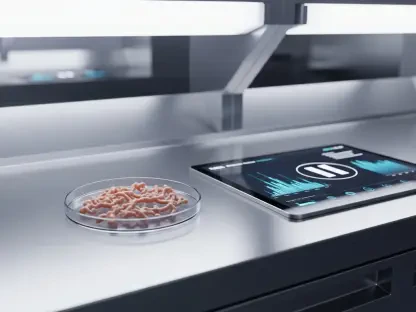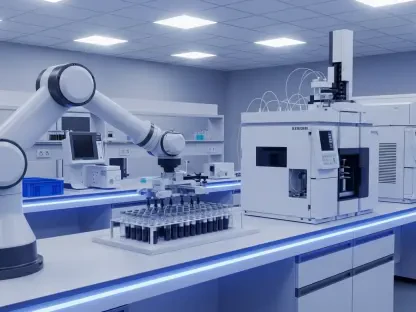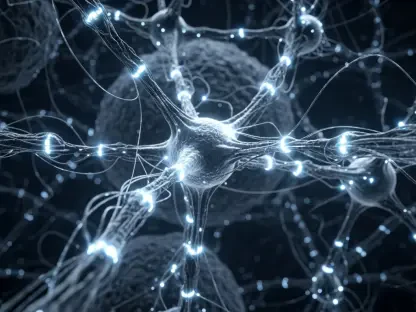A groundbreaking approach at the University of Wisconsin School of Medicine and Public Health has illuminated a potentially transformative treatment for kidney transplant recipients, potentially freeing them from lifelong dependency on anti-rejection medications. This development, centered around an innovative clinical trial, pivots on the infusion of donor stem cells into a recipient’s bone marrow, enabling transplanted organs to be accepted more naturally by the body’s immune system. This method, known as “chimerism,” reprograms the immune system, allowing donor and recipient immune cells to coexist harmoniously. The promising results offer hope and a possible paradigm shift in post-transplant care, with the potential to revolutionize treatment protocols for many patients like Shawn Wiederhoeft, a Madison native who has directly benefited from this trial. As the study progresses, data from 30 participants across multiple centers in North America reveal significant improvements, laying the groundwork for a future where transplant recipients live without the burden of lifelong immunosuppressive drugs.
A New Hope in Transplant Medicine
The traditional approach for kidney transplant recipients has long been characterized by the unavoidable necessity of lifelong immunosuppressants. These medications, though essential for preventing organ rejection, often pose numerous side effects, compromising a patient’s quality of life over time. This latest clinical trial seeks to change that reality, offering a new line of hope by reducing and eventually eliminating the need for these drugs. Led by Dr. Dixon Kaufman of the UW Health Transplant Center, the trial impressively showcased the safety and efficacy of withdrawing immunosuppressive medications without increasing the risk of rejection. This was achieved by employing stem cell technology, allowing the recipient’s immune system to adapt to and accept the transplanted organ. Not only does this groundbreaking method reduce medical dependency, but it also offers patients improved health and energy levels, ultimately transforming their daily lives. Success stories from this trial have resonated strongly within the medical community. The majority of participants, nearly 75%, have demonstrated long-term success in maintaining their health without the need for ongoing medication, presenting a remarkable advancement for the field. The magnitude of this progress has warranted submission to the FDA for review, signaling a crucial step toward making this treatment widely available to kidney transplant recipients. This trial represents not just an evolution in clinical practices but also a testament to the potential of stem cells to redefine conventional medical paradigms.
Enhancing Lives and Expanding Possibilities
Participants in the study, such as Wiederhoeft, have experienced profound changes, with this approach offering renewed hope and vastly improved lifestyles post-transplant. For Wiederhoeft, the opportunity to embrace life without the constant need for medications has resulted in enhanced well-being and a newfound vigor to pursue personal and creative ambitions. This significant improvement extends beyond physical health, instilling a sense of gratitude and inspiration in those who are benefitting from it. The effect of this advancement is felt not just in terms of physical health, but also in fostering a sense of freedom and opportunity. This sense of liberation has inspired participants to refocus their lives, seeing time post-transplant as not only a continuation but a rebirth of sorts. The trial has therefore not only addressed medical concerns but has fundamentally impacted how recipients envision their futures. The broader implications of successful trials like this are vast, promising a profound shift in post-transplant care and potentially redefining the future of organ transplants. This trial offers a blueprint for improved transplant outcomes, motivating further research and innovation in the field. The role of medical research and dedication is underscored in the pursuit of such treatments, showcasing how modern medicine can significantly change lives.
Future Implications of Revolutionary Treatments
The University of Wisconsin School of Medicine and Public Health has unveiled a promising new treatment for kidney transplant recipients, offering a potential pathway to free them from the lifelong use of anti-rejection medications. This innovative approach, pioneered through a clinical trial, involves infusing donor stem cells into the recipient’s bone marrow, facilitating a more natural acceptance of transplanted organs by the immune system. This process, termed “chimerism,” effectively reprograms the immune system, enabling a peaceful coexistence of donor and recipient immune cells. The encouraging outcomes suggest a potential shift in post-transplant care practices, with the possibility of transforming treatment protocols for numerous patients including Shawn Wiederhoeft from Madison, who has notably benefited from this trial. As this study continues, data from 30 participants across various North American centers show significant progress, paving the way for a future where transplant recipients can live without the constant need for immunosuppressive drugs.
